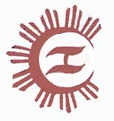|
|
|
 |
AMERICAN & JAPANESE SIGHTS ON APECBy Ed Aurelio C. ReyesKamalaysayan Writers and Speakers(October 1996) |
|
![]() (This page has a CYBER TALK-BACK instant feedback box at the bottom.)
(This page has a CYBER TALK-BACK instant feedback box at the bottom.)
![]()
 NE
HUNDRED YEARS ago, the Filipino nation was born in the outbreak of the 1896
Revolution, which was also the beginning of a two-year victorious struggle
against Spanish rule. But that victory won on August 13, 1898, was snatched from
Filipino hands by a new colonial master, the one described by Emilio Aguinaldo
two months earlier as the protector of the "independence" he was
proclaiming, the "Mighty and Humane North-American nation," the same
one he allowed to exclude Filipino troops in the march into Intramuros to
formally claim victory from the surrendering Spanish regime.
NE
HUNDRED YEARS ago, the Filipino nation was born in the outbreak of the 1896
Revolution, which was also the beginning of a two-year victorious struggle
against Spanish rule. But that victory won on August 13, 1898, was snatched from
Filipino hands by a new colonial master, the one described by Emilio Aguinaldo
two months earlier as the protector of the "independence" he was
proclaiming, the "Mighty and Humane North-American nation," the same
one he allowed to exclude Filipino troops in the march into Intramuros to
formally claim victory from the surrendering Spanish regime.
Jose Rizal was correct in pointing out in his essay, "The Philippines Within a Century" (1889) the distinct possibility, the only such possibility he discussed, that "the great American Republic whose interests lie in the Pacific and who has no hand in the spoliation of Africa may some day dream of foreign session"
Eleven years later, Senator Alfred Beveridge emphasized China's illimitable markets for US goods just beyond the Philippines. "The Pacific is our ocean," He said, reminding us of Rizal's own analysis quoted above the previous paragraph.
Rizal's discussion on the possibility of American conquest of the Philippines ended with the assertion that this would be "contrary to her traditions." But the American public accepted the following assertion from Beveridge: "The American Declaration of Independence applies only to people capable of self-government, not to a race of Malay children of barbarism schooled by Spaniards in the latter's worst estate." As the American Anti-Imperialist League put it, the policy of the US government in the Philippines sought "to extinguish the spirit of 1776."
It was Japan who had earlier dreamed of something like APEC, at a much smaller scale, more than half a century ago. The scheme was called "Greater East Asia Co-Prosperity Sphere" (GEACPS) and Japan joined the Axis Powers and went to war for the endeavor. What it got was a big blackeye in the form of atomic bomb explosions in Hiroshima and Nagasaki and a US-dictated constitution that clipped its militarist ambitions.
Japan started the idea for an Asia-Pacific Economic Cooperation (APEC) mechanism somewhat similar to GEACPS. But as the APEC evolved, Australia brought in the free trade area as the core concept and it was joined by the US which took over leadership in a strong lobby for a superlarge free trade area covering as producers and consumers the overwhelming majority of the world's population. The interests of Japan and the rest of Asia have been placed under jeopardy, but being the sole superpower in the world in an area where Europeans have no say at all, Washington expects to win not only the biggest ocean as an "American Lake" but the biggest continent as well as its own "Co-Prosperity Sphere" in the dubious tradition of the Parity Rights.
(Kamalaysayan Media Service)
![]()
|
|
|
..
|
![]()
![]()
![]() back to the website opening window
back to the columns opening window
back to the website opening window
back to the columns opening window![]()